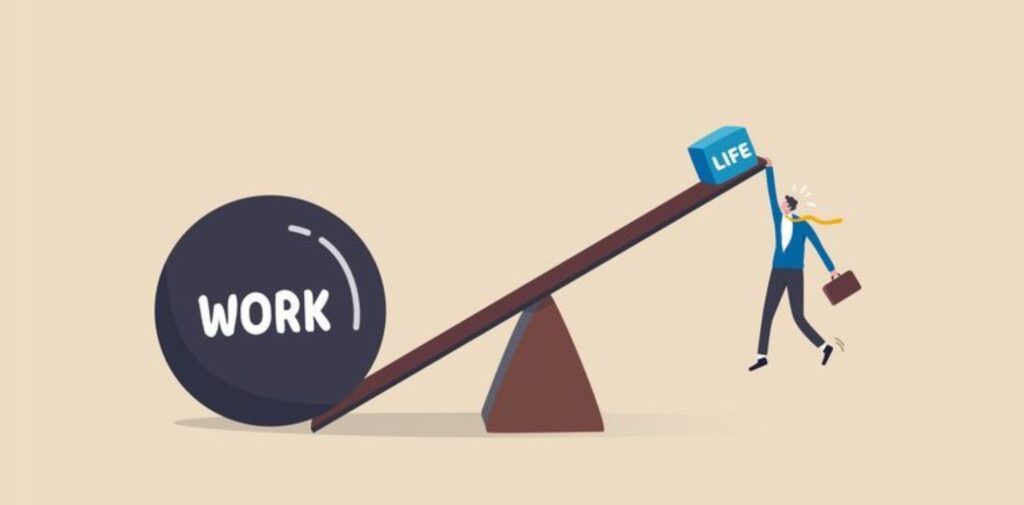In today’s fast-evolving professional landscape, a new generation of workers is making its mark: Generation Z, or Gen Z, defined as those born between 1997 and 2012. As they enter the workforce in significant numbers, their expectations, attitudes, and behaviors are reshaping traditional work environments. According to recent surveys, nearly half of Gen Z professionals are planning to leave their current jobs within the next two years. This staggering statistic raises important questions about the reasons behind this trend and its implications for the future of work.
The modern workplace is no longer what it was a decade ago, and this shift is especially pronounced among younger generations. Gen Z professionals have grown up in a world that values instant communication, rapid change, and access to endless information. As a result, they approach work with different priorities and goals compared to previous generations. In this article, we’ll delve deeper into the main reasons why so many Gen Z professionals are considering leaving their jobs so soon and what this trend says about the current job market and workplace culture.
Desire for Career Growth and Flexibility
One of the most significant factors driving Gen Z’s job-hopping behavior is their desire for career growth. Unlike previous generations who often stayed with one company for decades, Gen Z professionals are more focused on personal development and progression. They want to learn, grow, and constantly challenge themselves. When they feel stuck in repetitive or unchallenging roles, they begin to question their future at the company.
In many traditional workplaces, opportunities for rapid career advancement may be limited. Entry-level roles often involve repetitive tasks, and moving up the corporate ladder can take years. This lack of immediate growth can make Gen Z feel that their skills are underutilized. They expect faster career progression and are more likely to leave if they feel that they are not moving forward in their careers.
Another major factor is flexibility. Gen Z workers place a high value on flexible work arrangements, including the ability to work remotely and set their own hours. For them, the 9-to-5 office grind is outdated. They want the freedom to work from different locations, manage their time effectively, and maintain a healthy balance between their personal and professional lives. When companies fail to offer this flexibility, Gen Z professionals start looking for jobs that align better with their lifestyle preferences.

Burnout and Work-Life Balance
Burnout is another key issue that is causing Gen Z professionals to leave their jobs. While the concept of burnout is not new, its impact on younger workers is more pronounced today. Many Gen Z employees report feeling overwhelmed by the demands of their jobs, particularly when they are expected to work long hours without sufficient breaks. This pressure to perform can lead to physical and mental exhaustion, which in turn affects their job satisfaction and productivity.
With increasing awareness of mental health issues, Gen Z is more vocal about the importance of maintaining a healthy work-life balance. Unlike older generations, who may have accepted the stress of long working hours as part of the job, Gen Z workers are more likely to prioritize their well-being. They are willing to leave a job if it negatively impacts their mental health, opting instead for environments that support a better balance between work and personal life.
In a world where the lines between work and home have blurred due to technology and remote work, Gen Z professionals are pushing back against the idea that work should dominate their lives. Companies that fail to address the mental health needs of their employees risk losing talent to organizations that place a stronger emphasis on well-being.

Financial Concerns and Pursuit of Better Opportunities
Although career growth and flexibility are critical factors, financial concerns also play a significant role in why so many Gen Z professionals are looking to change jobs. While many in this generation value purpose and passion in their work, financial stability remains a top priority. As the cost of living continues to rise, especially in urban areas, Gen Z workers are quick to move on if they feel that they are being underpaid.
Many Gen Z professionals start their careers in entry-level positions that may not offer competitive salaries, especially in startups or smaller companies. These lower-paying jobs may meet their immediate needs, but as they gain more experience, they begin to seek higher compensation. If their current employers do not offer opportunities for raises or promotions, they are more likely to jump ship to find better-paying roles elsewhere.
Furthermore, the economic landscape has become increasingly volatile. Inflation, rising housing costs, and student loan debt have placed significant financial pressures on young professionals. This economic uncertainty motivates many to leave their jobs in search of roles that offer greater financial security, higher salaries, or better benefits.
Workplace Culture and Sense of Purpose
For Gen Z, work is not just about earning a paycheck—it’s about finding purpose and alignment with their personal values. Unlike previous generations, who may have been content with job stability and financial security, Gen Z professionals are more concerned with workplace culture and whether their work contributes to something meaningful.
This generation places a high value on diversity, inclusion, social responsibility, and sustainability. They want to work for companies that share these values and are committed to making a positive impact on the world. If they feel disconnected from their company’s mission or culture, or if they believe the organization is not doing enough in terms of social responsibility, they are more likely to leave in search of a company that better aligns with their values.
Workplace culture plays a crucial role in job satisfaction for Gen Z. They want to feel supported, respected, and valued by their employers. Toxic work environments, where employees are overworked, underappreciated, or discriminated against, will push Gen Z professionals to seek out healthier and more supportive work settings. Companies that fail to create inclusive and positive workplaces are likely to see higher turnover rates among their younger employees.

The Rise of the Gig Economy
Another major factor contributing to the job-hopping trend among Gen Z professionals is the growing appeal of the gig economy. The gig economy, characterized by freelance, part-time, or contract work, offers flexibility and independence that traditional full-time jobs often lack. Gen Z workers are drawn to the idea of working on short-term projects, exploring different industries, and having the freedom to control their work schedules.
Many Gen Z professionals prefer to take on freelance gigs or side projects in addition to their full-time jobs. For them, the gig economy provides an opportunity to explore their passions, diversify their income streams, and maintain a more flexible lifestyle. This shift in mindset makes it easier for them to leave traditional jobs when they find more appealing freelance opportunities.
The rise of platforms like Upwork, Fiverr, and other freelancing websites has made it easier than ever for Gen Z professionals to find gig work. Instead of committing to one employer, they can work with multiple clients, gaining diverse experiences and skills. This shift towards gig work reflects a broader change in how younger generations view employment. Stability and long-term commitment to one company are no longer the top priorities for many Gen Z workers.
Current Economic Situation and Job Security
The current economic climate also plays a significant role in why so many Gen Z professionals are considering leaving their jobs. With high inflation rates and the rapidly changing job market, job security is no longer as stable as it once was. The uncertainty in the economy has made many young professionals more willing to change jobs frequently to stay ahead financially and professionally.
In the past, staying with one company for many years was often seen as a way to ensure job security and career advancement. However, in today’s economic environment, where layoffs and company restructurings are more common, Gen Z professionals may feel that staying in one job for too long could limit their opportunities. They see frequent job changes as a way to adapt to the changing market and take advantage of new opportunities as they arise.
Conclusion
The trend of nearly half of Gen Z professionals planning to leave their jobs within two years highlights a significant shift in workplace dynamics. This generation prioritizes career growth, flexibility, work-life balance, and purpose over long-term job stability. As the workplace continues to evolve, companies will need to adapt to the changing needs and expectations of Gen Z workers.
Employers who want to retain Gen Z talent must focus on creating supportive work environments that offer opportunities for growth, competitive salaries, and a strong sense of purpose. By addressing these needs, companies can build more loyal, engaged, and satisfied workforces. However, those that fail to adapt may continue to see high turnover rates as Gen Z professionals seek out better opportunities in a rapidly changing job market.




